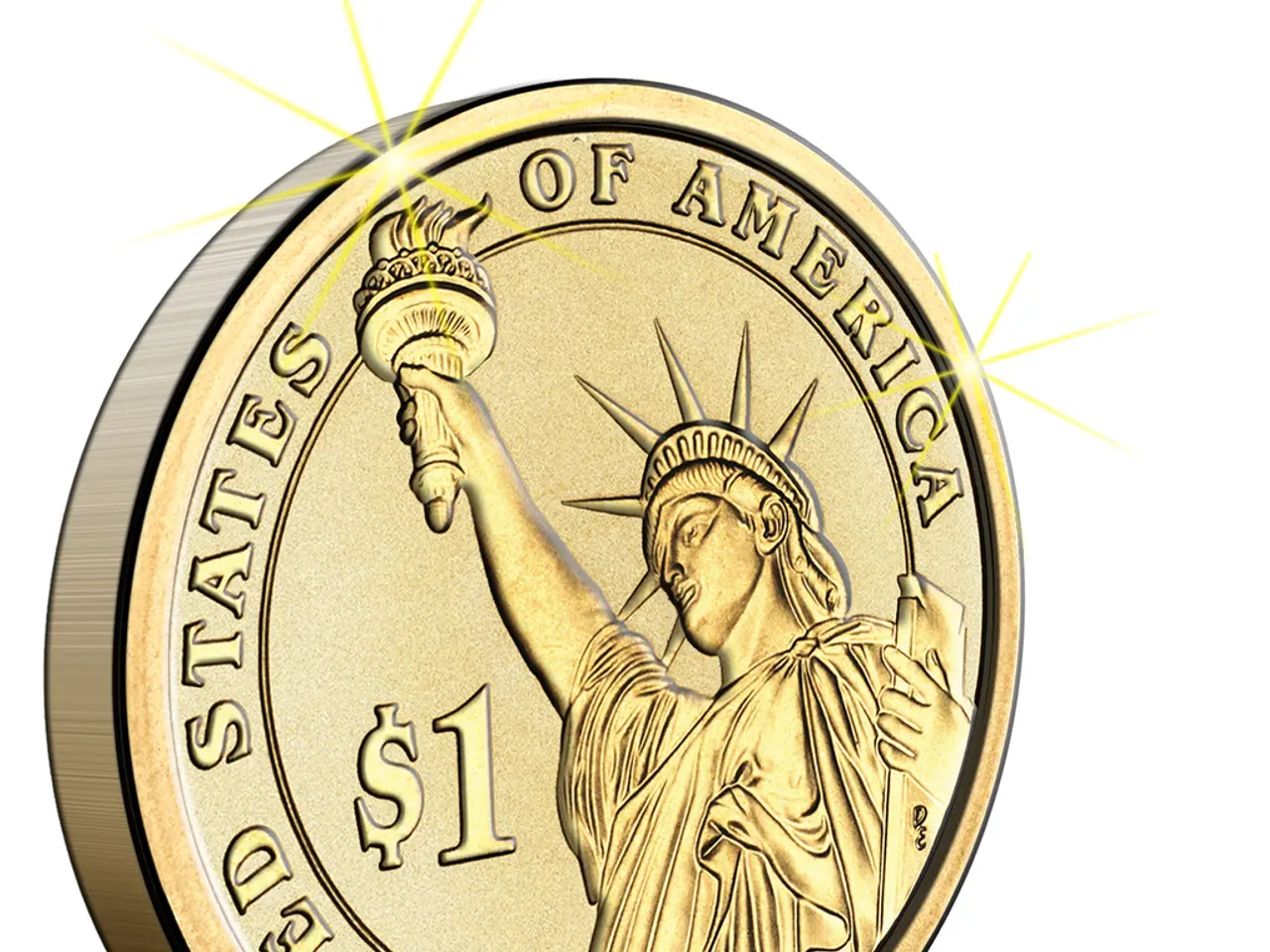Trump is establishing a pension plan that incorporates digital currencies like Bitcoin.
In a significant move, President Donald Trump has issued an executive order that could revolutionise the U.S. private retirement system, commonly known as 401(k). The order aims to allow investments in digital currencies and real estate, potentially impacting the retirement savings of over 90 million Americans.
Currently, employers or investment managers are responsible for ensuring 401(k) investments are made in the best interest of the savers and with prudence. However, investments in riskier assets such as digital currencies and real estate have been hindered due to the threat of lawsuits from investors in case of losses.
The Department of Labor and other agencies have been directed to review and revise the guidelines for the responsible management of 401(k) investments. The revised guidelines may include alternative investment options such as digital currencies.
The potential benefits for the 90 million American 401(k) account holders if the U.S. retirement system opens up to investments in digital currencies and real estate include greater diversification, potential for higher returns, and more investment choice and innovation.
Greater diversification can reduce risk by spreading investments across asset types not traditionally available in 401(k)s such as private equity, infrastructure, and alternative assets like cryptocurrencies and real estate. This diversification may improve long-term returns and provide access to asset growth opportunities previously limited to wealthy or institutional investors.
Potential for higher returns exists since alternative assets like private equity, real estate, and digital assets have historically shown competitive or superior returns compared to traditional stocks and bonds, enhancing retirement security for ordinary workers by broadening investment options.
More investment choice and innovation could democratize access to asset classes that public pension plans and wealthy investors have long utilized, thereby potentially empowering individual investors to better tailor their portfolios to their risk tolerance and goals.
However, the risks involved entail increased volatility and complexity, regulatory and fiduciary challenges, potential for investor confusion or inappropriate risk exposure, and delayed availability and uncertainty.
Digital currencies and alternative investments can be more volatile and less liquid than traditional 401(k) assets like stocks and bonds. This could mean higher short-term losses and more complex risk management, possibly unsuitable for less sophisticated investors.
Fiduciaries managing 401(k) plans will have to carefully vet alternative investments to meet their duty of prudent investment. This process involves navigating new regulatory frameworks and potential legal risks, given the evolving and sometimes uncertain nature of cryptocurrencies and private market assets.
Some 401(k) holders may not fully understand the intricacies and risks of digital currencies or private real estate, leading to unsuitable allocations or losses that could impact retirement savings.
The executive order triggers regulatory rulemaking that may not allow these new options to be widely available until 2026 or later, with ongoing adjustments to the oversight framework.
In summary, opening 401(k)s to digital currencies and real estate aims to enhance retirement security through diversification and access to alternative assets, but it also introduces greater volatility, regulatory complexity, and potential investor risk requiring careful implementation and participant education.
It is important to note that Trump has shown interest in bringing digital tokens more into everyday finance, as his family is involved in the business of digital tokens. Currently, the 401(k) investments are made in supposedly reliable government bonds or stock market index funds, which offer a stable return but lack the potential for substantial gains.
The U.S. 401(k) system allows employees to set aside a portion of their gross income for retirement through their employers. The trillions-dollar U.S. private retirement system is known as 401(k).
[1] https://www.investopedia.com/terms/4/401k.asp [2] https://www.investopedia.com/terms/a/alternativeinvestments.asp [3] https://www.investopedia.com/terms/c/cryptocurrency.asp [4] https://www.investopedia.com/terms/v/volatility.asp
- The revised guidelines for managing 401(k) investments, following President Trump's executive order, may include alternative investment options such as digital currencies, paving the way for these assets to be incorporated into retirement savings, potentially offering greater diversification, higher returns, and more investment choice and innovation to the 90 million American 401(k) account holders.
- With the Department of Labor and other agencies reviewing and revising the guidelines for 401(k) investments, the U.S. retirement system could open up to investments in digital currencies, technology that has historically shown competitive or superior returns compared to traditional stocks and bonds, signifying Trump's interest in bringing digital tokens more into everyday finance.




